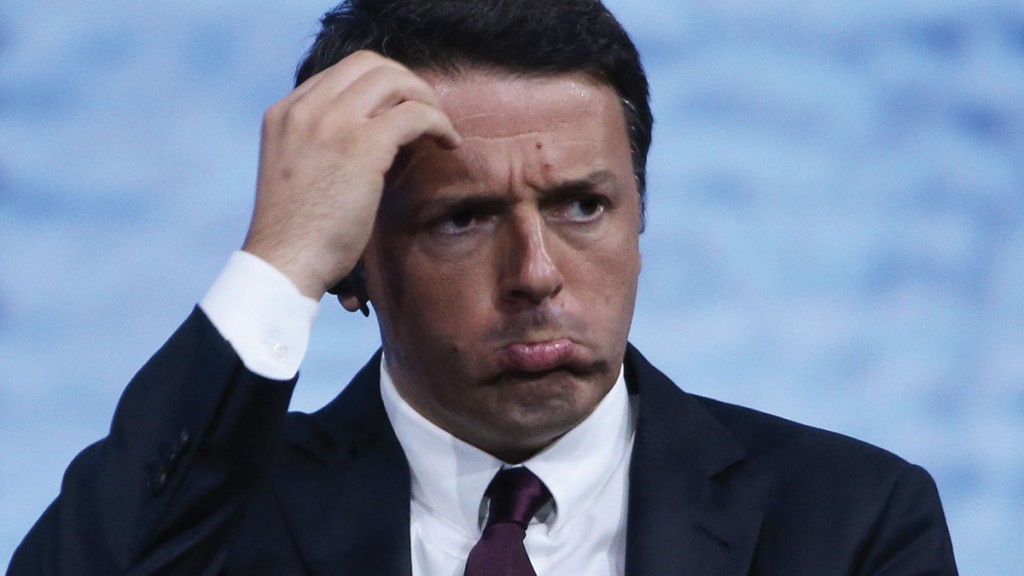
Was that it? After a triple-dip recession, Italy finally began growing again in early 2015. But the rebound already appears to have petered out. In the second quarter, overall eurozone growth slowed, but Italy’s ground to a complete halt. Output stagnated between April and June. Industrial production registered its steepest fall in nearly two years.
“Italy is falling further behind the pace in Europe – a long-running trend,” as The Wall Street Journal’s Richard Barley points out. Following the longest slump since 1945 and a mini-upswing, Italy’s overall output is still 8% below its pre-crisis peak. The eurozone as a whole, notably Germany, has long surpassed this level.
The renewed stagnation “will be gnawing” at Italy’s centre-left prime minster, Matteo Renzi, for several reasons, says the FT. Italy’s banks are grappling with a big pile of non-performing loans. The sector has already undermined growth by being reluctant to lend, and will be even more so now that growth has disappeared.
Meanwhile, after decades of over-borrowing, Italy has ended up with a public debt pile worth 135% of GDP. Without growth it can’t begin to get that under control, while it hardly helps that the economy has slipped into deflation. Prices have been falling on an annual basis for six months now. While inflation erodes debt, deflation makes it heavier, endangering confidence and investment.
The immediate problem, however, is political. Renzi has called a referendum for October. The idea is to gain popular approval for an overhaul of parliament, curtailing the power of the senate, which has hamstrung lawmaking in recent years. With its wings clipped, there would be much less scope for long-overdue structural reforms to get stuck or derailed. Renzi has threatened to resign if he loses the vote, which has prompted opposition parties to portray it as a verdict on his increasingly unpopular government. Bad economic news is not going to help his cause.
Renzi has so far managed to push through some small but important reforms, such as making it slightly easier for employers to fire new workers. But if this referendum gambit fails, the economy would stay “stuck in a low-growth rut”, says Barley.
Moreover, the main beneficiary is likely to be the populist Five-Star movement, which wants a referendum on Italy’s euro membership. The departure of a founding EU member from Europe’s integrationist project could mean the death of the single currency – and would constitute another massive blow to the EU. Italy’s chronic crisis could soon come to an explosive end.